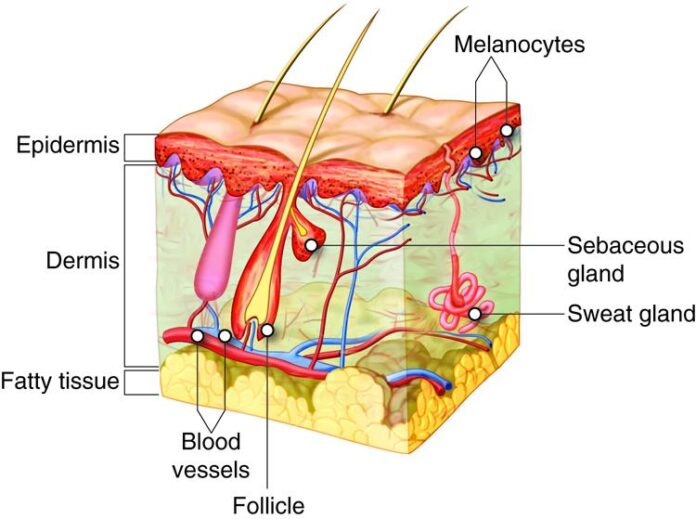
Achieving maximum muscle growth is the ultimate goal for many fitness enthusiasts and bodybuilders. While consistent strength training and a balanced diet are crucial components of gaining muscle mass, incorporating the right vitamins into your routine can further enhance your results.
Vitamins play a crucial role in muscle growth and recovery by supporting various physiological processes in the body. From assisting in protein synthesis to promoting proper nutrient absorption, vitamins are essential for optimizing muscle growth. In this comprehensive guide, we will explore the top vitamins that can help you maximize your muscle growth potential.
1. Vitamin D
Vitamin D is often referred to as the “sunshine vitamin” because our bodies can synthesize it when exposed to sunlight. This essential vitamin plays a key role in muscle function and growth by promoting protein synthesis and supporting muscle strength. Research has shown that individuals with higher levels of vitamin D tend to have greater muscle mass and strength.
In addition to its muscle-building benefits, vitamin D also plays a crucial role in bone health and immune function. To ensure you are getting an adequate amount of vitamin D, consider incorporating foods like fatty fish, eggs, and fortified dairy products into your diet. Additionally, spending time outdoors in the sunlight can help increase your vitamin D levels naturally.
2. Vitamin C
Vitamin C is a powerful antioxidant that plays a vital role in muscle recovery and repair. This essential nutrient helps protect your muscles from oxidative stress and inflammation, both of which can hinder muscle growth. Additionally, vitamin C is necessary for collagen synthesis, which is essential for maintaining the structural integrity of your muscles.
Incorporating vitamin C-rich foods like citrus fruits, bell peppers, and broccoli into your diet can help support muscle growth and recovery. Additionally, consider taking a vitamin C supplement to ensure you are getting an adequate amount of this essential nutrient.
3. Vitamin E
Vitamin E is another important antioxidant that can help support muscle growth and repair. This essential vitamin helps protect your muscles from oxidative damage, which can occur during intense exercise. Additionally, vitamin E plays a crucial role in reducing inflammation and promoting muscle recovery.
Including vitamin E-rich foods like nuts, seeds, and leafy greens in your diet can help support muscle growth and repair. Consider adding a supplement to your routine if you are not getting enough vitamin E through your diet alone.
4. Vitamin A
Vitamin A is essential for maintaining proper muscle function and growth. This fat-soluble vitamin plays a crucial role in protein synthesis, which is essential for building and repairing muscle tissue. Additionally, vitamin A supports immune function, which is important for overall health and optimal muscle growth.
Include vitamin A-rich foods like liver, sweet potatoes, and carrots in your diet to support muscle growth and recovery. Consider taking a vitamin A supplement if you have difficulty meeting your daily requirements through food alone.
5. B Vitamins
The B vitamins, including B1 (thiamine), B2 (riboflavin), B3 (niacin), B6 (pyridoxine), B12 (cobalamin), and folate, play a crucial role in energy metabolism and muscle function. These water-soluble vitamins help convert carbohydrates, fats, and proteins into energy that your muscles can use during exercise.
In addition to their energy-producing benefits, B vitamins also support muscle repair and growth by promoting protein synthesis. Incorporate B vitamin-rich foods like whole grains, lean meats, and leafy greens into your diet to support muscle growth and recovery.
6. Vitamin K
Vitamin K is essential for maintaining healthy bones and supporting muscle growth. This fat-soluble vitamin plays a crucial role in calcium metabolism, which is important for skeletal muscle function. Additionally, vitamin K helps promote muscle repair and regeneration.
Including vitamin K-rich foods like leafy greens, broccoli, and Brussels sprouts in your diet can help support muscle growth and repair. Consider adding a vitamin K supplement to your routine if you have difficulty meeting your daily requirements through food alone.
7. Magnesium
While not technically a vitamin, magnesium is an essential mineral that plays a crucial role in muscle function and growth. This mineral is involved in over 300 enzymatic reactions in the body, including those responsible for protein synthesis and muscle contractions.
Magnesium also helps regulate muscle relaxation and contraction, which is important for maintaining optimal muscle function during exercise. Include magnesium-rich foods like nuts, seeds, and whole grains in your diet to support muscle growth and recovery. Consider taking a magnesium supplement to ensure you are getting an adequate amount of this essential mineral.
8. Zinc
Zinc is an essential mineral that plays a crucial role in muscle growth and repair. This mineral is involved in protein synthesis and supports immune function, both of which are important for optimizing muscle growth. Additionally, zinc helps regulate hormone levels, which can impact muscle growth and recovery.
Include zinc-rich foods like oysters, beef, and lentils in your diet to support muscle growth and recovery. Consider taking a zinc supplement if you have difficulty meeting your daily requirements through food alone.
In conclusion, incorporating the right vitamins into your routine can help maximize muscle growth and optimize your results. By including vitamin D, vitamin C, vitamin E, vitamin A, B vitamins, vitamin K, magnesium, and zinc in your diet and supplement regimen, you can support muscle growth, enhance recovery, and achieve your fitness goals more effectively. Remember to consult with a healthcare provider or nutritionist before making any significant changes to your supplement routine to ensure you are meeting your individual nutritional needs.


















